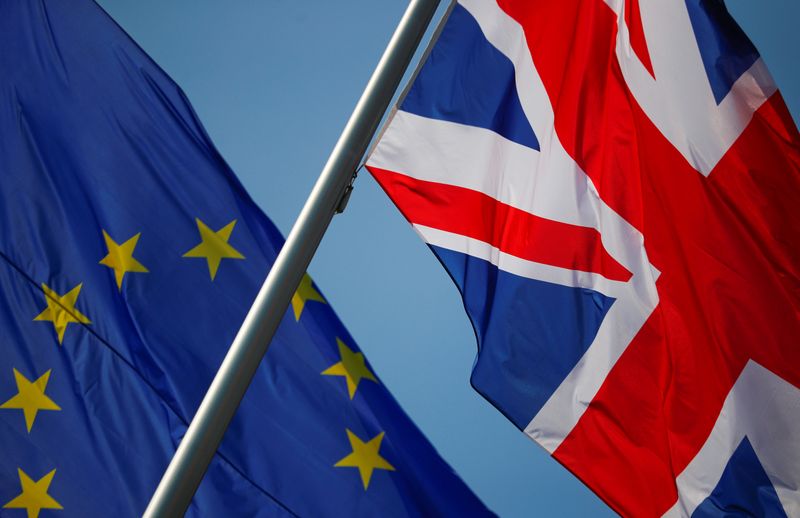By William James
LONDON (Reuters) - British Prime Minister Boris Johnson is pressing ahead with legislation on trade despite a warning from Brussels that it could wreck their future relationship and an acknowledgement by his government that it violates international law.
The Internal Market Bill is aimed at ensuring Britain's four nations can trade freely with one another after leaving the European Union, but the government says that requires creating powers to override part of the withdrawal treaty it signed with Brussels.
WHY DOES BRITAIN WANT TREATY-BUSTING POWERS?
The government says the powers are a safety net to protect peace in Northern Ireland if negotiations with the EU on how to manage cross-border trade fail.
The EU wants to make sure the open border with Ireland doesn't act as a back door into the bloc for goods. Britain wants to make sure goods flow freely between Northern Ireland and the rest of the United Kingdom.
WHAT HAPPENS NEXT?
The bill must pass through both houses of the British parliament to become law -- first the House of Commons, where Johnson's Conservative Party has an 80-seat majority, and then the House of Lords, the upper chamber, where it does not have a majority.
The bill passed its first stage in the Commons by 340 votes to 263, and looks set to clear further stages next week after Johnson moved to avert a rebellion by offering concessions.
The bill is scheduled to finish its journey through the lower house on Sept. 29.
After this it will undergo scrutiny in the House of Lords. The bill is not being fast-tracked by Lords and will take most of October and November to consider.
This means it will not be law either before the EU's end of September deadline to withdraw the bill, or Johnson's Oct. 15 deadline for a deal with the EU. The negotiations around either of these deadlines, if successful, could remove the need for the bill's most contentious parts.
CAN THE HOUSE OF LORDS BLOCK THE BILL?
Many members of the upper house have criticised the bill, including Conservatives, but their primary role is to amend and improve legislation, not to block it on principle.
While there is precedent for the Lords blocking legislation, deciding to do so on this bill would provoke a constitutional row, and such a move is currently seen as unlikely.
The House of Lords is more likely to seek to amend the bill to remove or dilute certain parts, or insert additional checks and balances. The amendments would go back to the House of Commons for approval -- probably in early December.
If Johnson's lower-house majority holds firm, the bill could bounce back and forth between the two chambers until either a compromise is found or the government attempts to pass it without House of Lords approval.
WHAT CONCESSIONS HAS THE GOVERNMENT MADE?
Johnson has so far made two concessions.
Firstly he promised parliament a vote on any decision to use the treaty-breaking powers created by the bill -- a compromise that snuffed out a rebellion within his own party.
Secondly, he has also committed to referring any dispute with the EU to the resolution mechanism set out in the Withdrawal Agreement "in parallel" to using the treaty-busting powers unilaterally.
